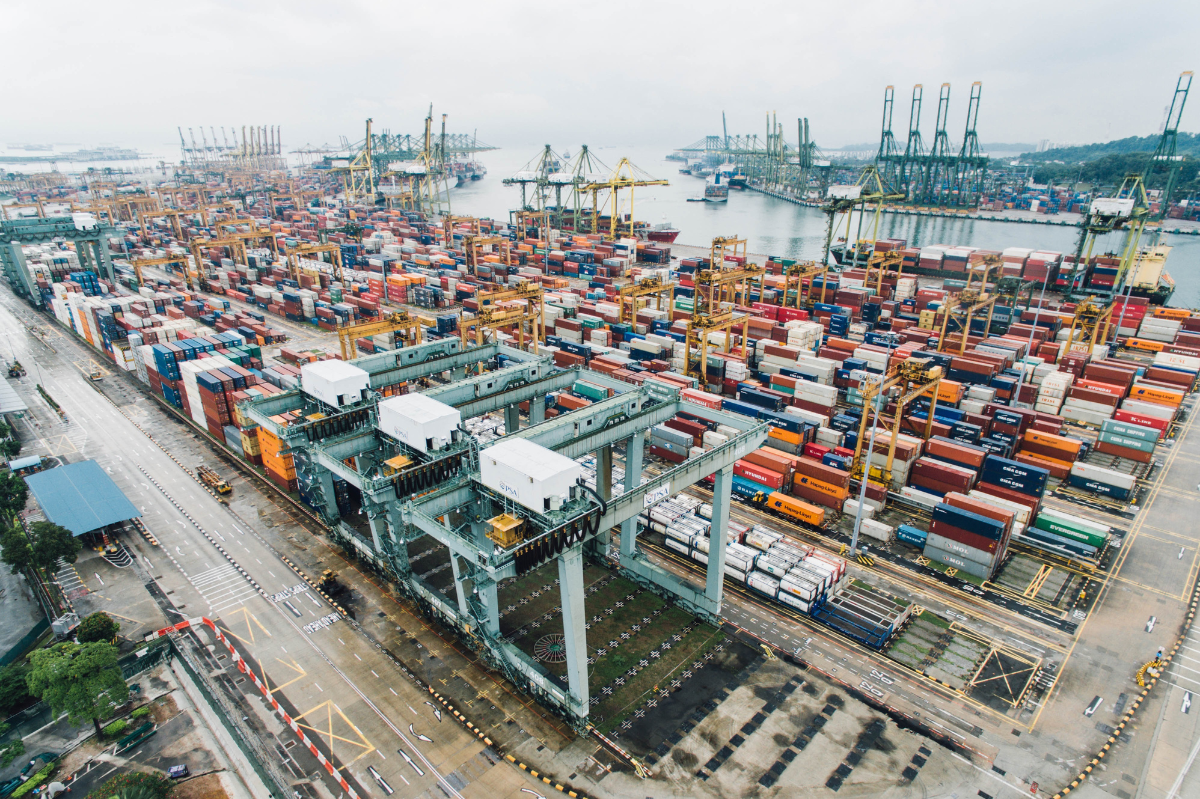The end of CHIEF: How to prepare for the new Customs Declaration Service

DSA Prospect Associate, Nigel Benton discusses the new Customs Declaration Service and how businesses can prepare to use it moving forward.
It was announced last year that the government would be closing the nearly 30 year old Customs Handling of Import and Export Freight (CHIEF) system and moving to the UK’s single customs platform known as the Customs Declaration Service (CDS).
While the first phase of the transition will not come into effect until after 30 September 2022, more than 2.5 million declarations have already been processed to date using the new electronic CDS system. HMRC is encouraging businesses to start the preparing now as the migration process can take up to 6 months to complete, depending on the size and intricacies of your business.
"We know the introduction of new rules can be challenging and appreciate all the efforts industry has already made to keep goods flowing. The Customs Declaration Service provides us with the capacity and capability to grow in line with the Government’s ambitious trade plans and to have the world’s most efficient customs system by 2025."
Katherine Green & Sophie Dean, HMRC Directors General for Borders and Trade
What is the Customs Declaration Service?
The Customs Declaration Service (CDS) is the new secure platform for submitting import and export declarations. Inline with the government’s trade plan, it will become the UK's single customs system after 31 March 2023.
Preparing for the Custom Declaration Service
Whether you have hired a customs intermediary to handle declarations on your behalf, or if you have decided to submit your own; it’s important to know how the new system works and how to prepare for the upcoming changes.
All businesses will be required to declare both import and export goods through the CDS after 31 March 2023, this is when the CHIEF system will be fully withdrawn.
The current CHIEF system will cease in two phases:
- Phase one: 30 September 2022 - import declarations made through CHIEF will end. From 1 October 2022 businesses must submit important declarations through the Customs Declaration Service.
- Phase two: 31 March 2023 - export declarations made through CHIEF will end.
Following these dates, businesses will use the Customs Declaration Service to:
- Make import and export declarations
- Set up a customs intermediary or agent, or alter their existing details
- Upload supporting documents
- Receive postponed import VAT statements or your import VAT certificates to complete your VAT return
It’s important for individuals who choose to submit their own declarations to remember that they will need to invest in specialist software that is compatible with HMRC’s systems.
You’ll also want to ensure your team is trained and familiar with submitting declarations using the Customs Declaration Service.
The government has offered a Trader Dress Rehearsal service to help businesses prepare for using the CDS, as well as a dedicated helpline.
How to access the Custom Declaration Service
To access the Customs Declaration Service, users will need their Government Gateway ID and password.
You’ll also need to provide your:
- Economic Operator Registration and Identification number (EORI)
- Unique Taxpayer Reference (UTR)
- Business address used for your current customs records
- National Insurance number (individuals or sole trader)
- The start date of your business
You will be able to make declarations once you have signed up to use the service; your access may happen immediately, or within 5 working days if additional checks are required by HMRC.
Customs Declaration Service reminders
- Any supporting documents that you need to provide will have to be sent to HMRC through the Secure File Service. This includes documents such as licenses and certificates of origin.
- Check the status of your custom declaration to ensure it is correct. You will need to manually notify HMRC on the arrival of your goods through the CDS if they have reached the border location but are not showing as ‘arrived’.
- Make sure that you are using the correct country codes. When you declare the country of origin or the country of dispatch, you should not be using the EU country code.
How DSA Prospect can help
Be sure to review and plan for these changes as soon as possible to ensure a smooth transition.
The team at DSA Prospect can help you implement measures to protect the health of your business.
Need to discuss the possible impact of the new Customs Declaration Service? Please contact our team today.
Disclaimer: The information shared on the DSA Prospect website and social media accounts (inclusive of all content, blogs, communications, graphics, guides and resources) is meant to provide helpful insight and discussion on various business and accounting related topics. It contains only general information that is subject to legal and regulatory change and is not to be used as an alternative to legal or professional advice. DSA Prospect Limited accepts no responsibility for any actions you take, or do not take, based on the information we provide and we always recommend that you speak with qualified professionals where necessary before making any decisions.


